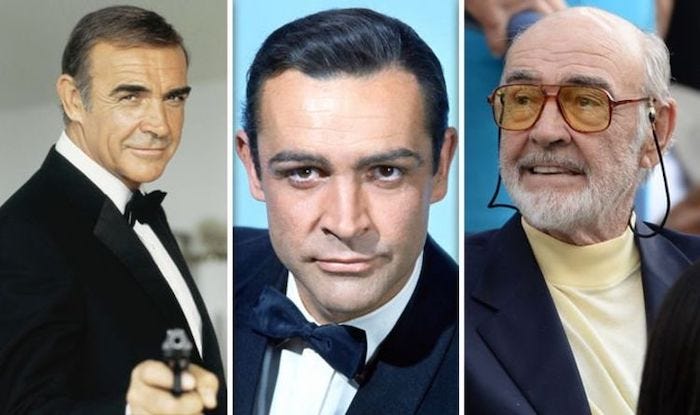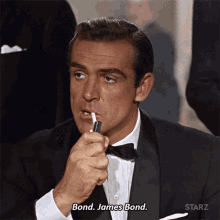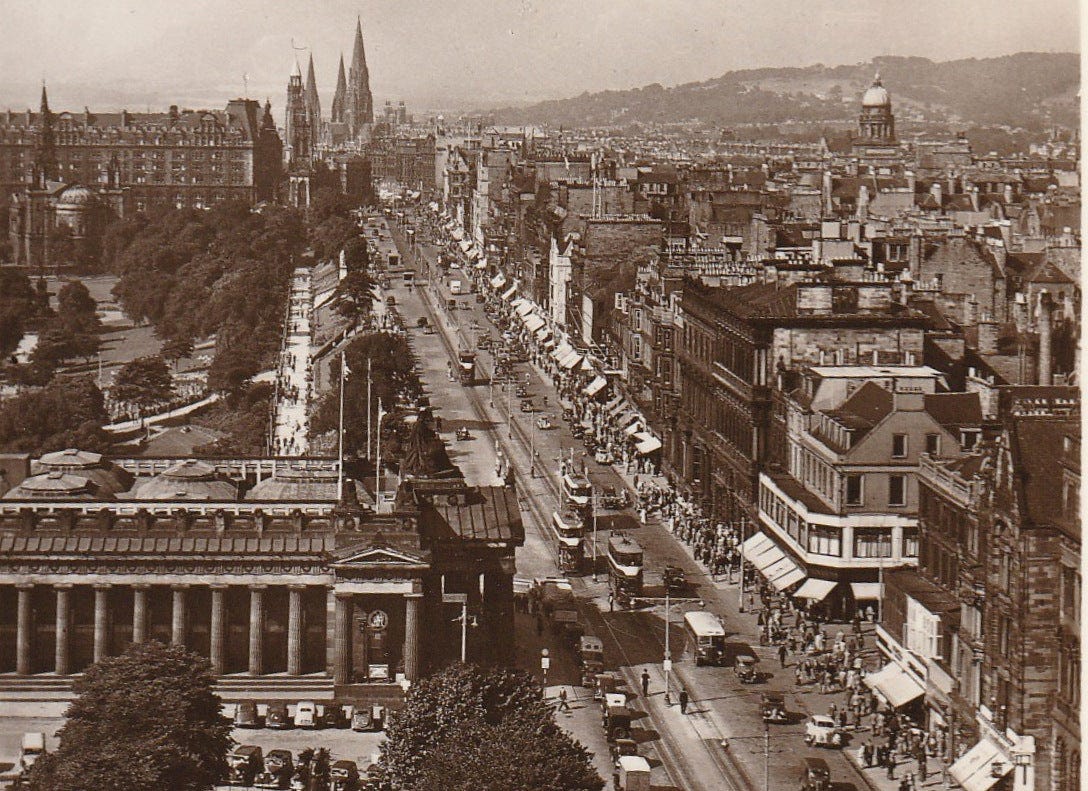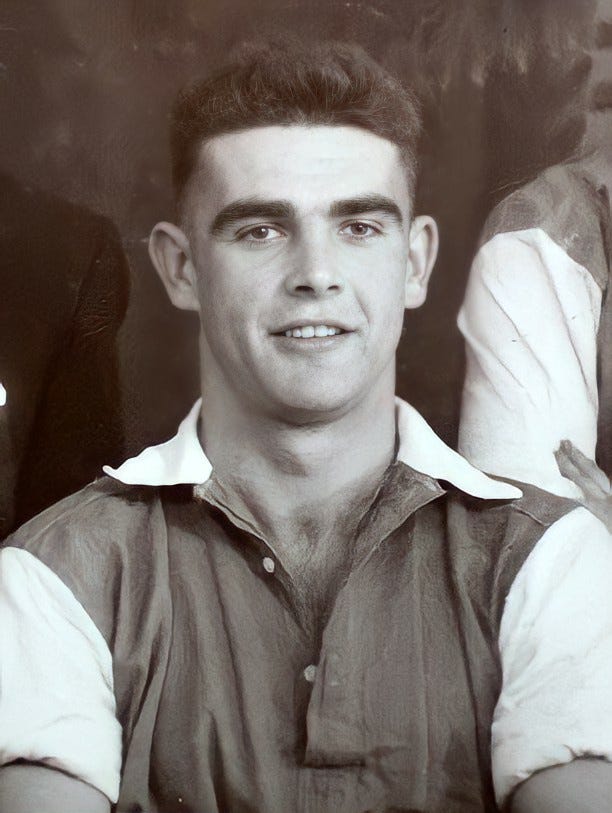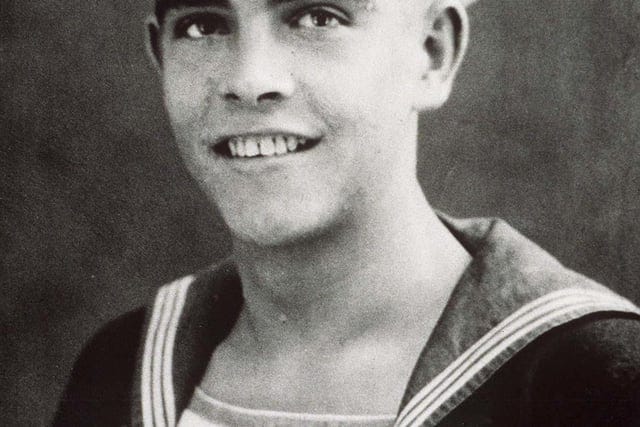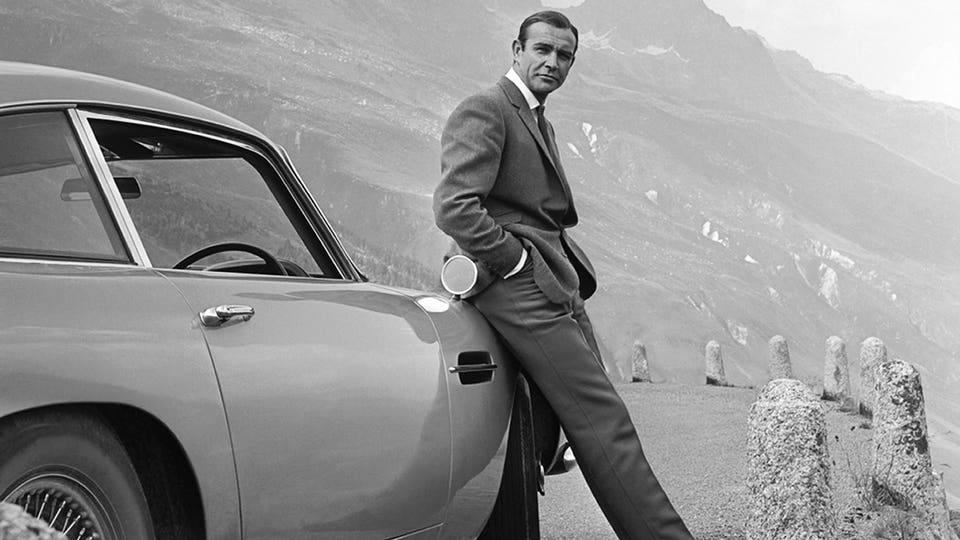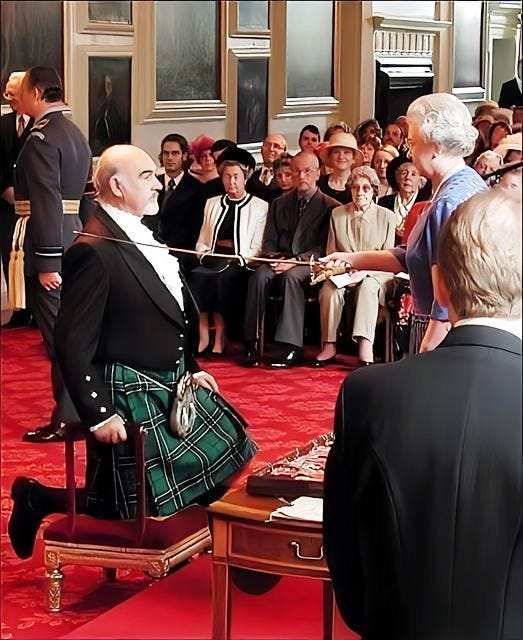An Authentic Character
Showcasing the integrity, ferocity, and remarkable life of Sir Sean Connery
Sean Connery is undoubtedly one of the coolest human beings ever to roam the Earth.
Sipping martinis, sporting tuxedos, wheeling around in specially equipped Aston Martins. Dispatching enemies with cold disdain.
Exuding innate confidence.
Connery was a knight. He made untold millions and turned down untold more. His words are among the most recognizable in popular culture history.
"Bond, James Bond."
But as cool as Connery's public image managed to be, the life upon which that image was built is both more fascinating and somehow more ordinary.
He didn't care about people thinking he was cool. In fact, he didn't much care what anyone thought. His self-confidence was massive, probably a step short of narcissism, and occasionally spilling over into it.
That confidence flowed from a strong self-concept built on clear principles. Rules of thumb hardened in tough times as a working class Scottish urbanite who, like many of us, wanted to get out. To improve his lot in life.
What makes Connery different is that he managed to do this without sacrificing his integrity. His life remained a harmony, with his most deeply held beliefs and professional activities always congruent with one another.
We can learn a lot from that.
A few vignettes from Connery's life are disproportionately telling.
When Connery was 23, fellow Scot Matt Busby watched him play in an exhibition football match and immediately offered him a professional contract to play for Manchester United.
Incredibly, Connery declined. He knew he was good enough, but reckoned his career would be too short, leaving him at a loose end in his 30s without a more durable trade. Football was one of many things he was good at. He didn’t believe it could sustain him or should define him.
The self-confidence it takes to bypass a football contract is astonishing. But the ability to take a long view at such a young age reflects an even more astonishing sensibility.
A few years later, Connery was visiting his home town of Edinburgh, having drinks in a billiard hall. After a minor scuff with a stranger, he found himself set upon by six members of Valdor, one of the city's most feared street gangs.
They demanded Connery's jacket. He refused. They threatened him. He threatened them back. They came after him. He grabbed two of them and cracked their heads together, then savaged the remaining four.
After this, Valdor left him alone, as did every other gang in the city.
There it was again. The unreasonable self-confidence, in this case combined with a hard-bitten "what's mine is mine" defiance. Not a toxic toughness. No posturing. But a willingness to suffer as necessary to protect his interests, coupled with aggression and tenacity that made his adversaries do the suffering.
Years later, he found himself back in Edinburgh for a film festival where he was to receive an award.
As his taxi took him across town, Connery named off every street, alley, and close. He told the cabbie the best route to the venue, which was way off the beaten path.
Amazed, the driver asked his passenger how he knew the city so well. Connery revealed that his first job as a teenager was delivering milk to the doorsteps of this inner city clutch of neighborhoods.
"Oh wow," the driver said. "What do you do now?"
Connery chuckled, and said it would be hard to explain.
Here we glimpse the humble roots of a global megastar. And we glimpse how good he expected himself to be at everything he tried, no matter how tedious or mundane, even as a directionless teenager.
Before his acting career began, he also worked as a lifeguard, a coffin-polisher, a bricklayer, a bouncer, a lorry driver, and an anti-aircraft gunner in the Royal Navy.
Connery learned early to bloom where he was planted. To be grateful for meagerness. To keep his feet planted in the present even if one eye was peering over the horizon.
There is a humility visible in these glimpses. A counterweight to the larger-than-life stature of the fearless street fighter who likely felt pity for the six victims who went home bruised and bloodied for their troubles.
Connery very nearly didn't get cast as James Bond. Creator Ian Fleming and producer Albert Broccoli shared the view that he was too tall. Too manly. Too unrefined. Too Scottish.
Connery refused to tone down his masculinity. Not because it was his strength, but simply because it was who he was. It seemed in that moment that placing limits on how much of himself he was willing to subjugate as an actor might cap off his progress.
Then the women weighed in. Broccoli's wife Dana and Fleming's girlfriend Blanche Blackwell persuaded their men that if they wanted more women to watch Bond films, they should reconsider. The phrase they applied to Connery's je ne sais quoi was "sexual charisma."
The animal magnetism Fleming worried might obscure the Bond persona he had in mind ended up being the fictional superspy's signature trait. It didn't merely influence the way Fleming and Broccoli told their stories. It redefined the entire spy genre for decades.
Fleming would later rewrite the Bond origin story to give his character Scottish ancestry. The tail had wagged the dog.
And in this vignette, we once again see Sir Sean's trademark self-confidence. Here, it evinces a ferocious authenticity. If he couldn't find a way to harmonize profession and self, he would choose self. And when it came to his self-concept, there would be no compromise.
Connery became something like a human thistle in his latter years, his affect scrubbed of any gentleness as the world around him changed in confounding ways.
He quit the Hollywood he'd helped build, reasoning that it was run by idiots. He made a careless remark about domestic violence, attracting enough scorn to make him clarify and apologize, simultaneously shrugging at the world’s declining sense of humor.
Connery wasn’t a fan of paying taxes at levels he considered unfair. This created friction both official and unofficial, though his accounts remained in order.
He was strident about Scottish identity and cultural heritage, and argued that only independence could protect these cherished things.
The same fearless self-belief that made Connery an irresistible upstart made him a prickly and standoffish statesman. And the more people noticed his views, the more the old-fashioned Scotsman chafed against the general direction of things.
Sean Connery earned a knighthood not because of political pliancy, but in spite of it. The honor was delayed by his loud and proud calls for an independent Scotland.
But in the end, the Queen knew he belonged among the most exalted leaders of Great Britain. There could be no denying the magnitude to which he influenced others through his work, marked as it was by world-changing presence, connection, and star power.
As he receives this ultimate honor, we see Connery at his most esteemed and most humble all at once. He belongs in the moment. It feels like a natural plot point in an epic story of a towering figure.
But Sir Sean Connery wasn't a pretty boy born into a charmed life flooded with good fortune. He was a grafter who rose to notoriety by creating and then seizing opportunity through tireless self-belief, moxie, and a generous dose of charm which often, though not always, reflected generosity of spirit.
And it all started with working hard, being true to himself, and refusing to be defined by the world around him.
That's what we might call character.
And yet, a lot of what made Connery who he was marked him as vividly anachronistic by the time he died.
Had he lived to the present day, he'd have been cancelled on several grounds. And that's an implied caution of studying his life.
We need people with character. We can disapprove of views and discourage attitudes which are outside the norm. We can label someone's views controversial. When people commit crimes or hurt others, that's obviously not okay.
But we shouldn’t run around cancelling people. We shouldn’t wish for a world where things like charisma and magnetism are grounds to presume the worst in someone. To presume toxicity any time we see someone proudly masculine is a wish against authenticity. A wish for someone to be something they're not just to gain approval, which we're supposedly enlightened enough to refrain from doing these days.
Is a world without Sir Sean Connery a world we want?
Only if we want a characterless world where everyone is compliant and agreeable and no one stands out.
Sean Connery could have been a footballer, a prize fighter, or a milkman. He ended up being James Bond, a knight of Great Britain, and a stubborn contrarian single-handedly trying to throttle the world.
There was a tremendous power in this individual. At least one if not several forms of genius. All wrapped in the rich irony that a man with a crystalline and irrepressible sense of self did his life's best work pretending to be others.
We celebrate celebrities. That’s why they’re called celebrities. Sometimes we do too much of that. The qualities that make celebrities seem great are not the ones we need plentiful in ordinary society.
Connery is the exception to this rule. He was a celebrity whose personal qualities were exemplary. Traditional. Redeemable.
A celebrity we can aspire to be without losing ourselves, because he remained himself.
And it all started with his commitment to build and harden clear rules for life.
Be great at what you do now, but keep an eye on the future.
Believe in yourself enough to be yourself.
Suffer, or better yet inflict suffering, to protect what's yours.
Don't be defined by situations. Define them for others.
Be ferociously authentic, with emphasis on ferocity.
I learned a lot from taking a closer look at this Scottish icon during a recent trip around the highlands. A lot about character, authenticity, and living a life of integrity. Connery managed to harmonize his professional life with his most deeply held values.
That’s a worthy example for us all.
TC is an American writer living in Great Britain.




